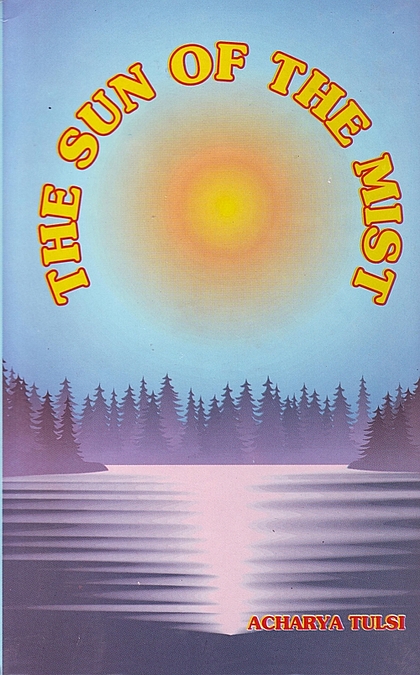The Young princess took a vow that she would marry only that man who would jump into a boiling cauldron. She was the daughter of an illustrious king, beautiful, talented. Hearing of her fame, a number of princes had sent proposals of marriage. But her vow stood in the way. To jump into a cauldron of boiling oil was to invite certain death. No one wished to die. The princess continued a maid.
One young prince sat beside a saint. Responding to the topical discussion, the saint observed, "Two grains of sandalwood, it put in a cauldron of boiling oil, would render it perfectly harmless." The prince procured sandalwood and sent word to the princess, accepting her challenge. As the news spread, people putting aside all work, proceeded to the palace. Thousands of them gathered to witness the trial. A big cauldron of oil stood boiling on the fire. The suitor-prince stood ready to jump into it. The spectators felt pity for the young man. But the face of the prince shone with pride. He sprinkled a bit of sandalwood on the boiling cauldron and jumped right into it. It was a thrilling sight. Just a drop of boiling oil, if it falls on any part of the body, would burn through it. And yet here was the prince, who had immersed his body thoroughly into a seething element, come out safe and sound! The princess put the necklace of flowers round his neck, in fulfilment of her vow.
Just a myth who can say for certain that it actually happened? Of course, sandalwood is associated with coolness in the popular mind. Khamat khamna is also like sandalwood, which can tranquillize a boiling flood of anger. When the flood of anger boiling in the depths of the soul gets out of control, it works havoc all round. The unfailing remedy for it is to forgive and be forgiven.
A remarkable festival in the Jain culture is Samvatsari, Festival of Austerities. After austerities lasting for eight days. On the ninth day the great moment of Khamat khamna, i.e. mutual exchange of forgiveness. Khamat khamna means to experience the feeling of great liberation after washing the mind clean of all affliction and sorrow. This in itself constitutes the most excellent practice of non-violence. For people in general, non- violence is limited to non-killing. But the great preceptors have said that unless a man's mind is totally free from malice, he is engaged in the act of killing, every moment. He may not take any one’s life, but his own malice kills him. This is violence. Only he who is kindly disposed to all living beings in thought, speech and action, can avoid violence.
The Festival of Austerities is also the festival of forgiveness. It is the festival of friendship, of giving and receiving pardon, a festival of self—purification. In this context, the word, Kshamayachna (begging forgiveness) calls for deep deliberation. It implies two entities—one that asks for forgiveness, the other that grants it. One who begs forgiveness is considered to be inferior to the one who forgives. Superiority and inferiority-both these complexes are of little use in the field of spirituality. The path of spirituality is the path of equanimity, of equality. On this path, the individual asks forgiveness for his negligence, and forgives another without asking. Man's ego melts away. With the dissolution of one ego, the other too is overwhelmed. When the wall of ego between two persons falls down, both attain virtue.
How wonderful is this festival of forgiveness! How beneficial of the mind are not resolved on this day, it becomes achieve right living. Rightness is a rare jewel. The purity the mind is its security-chest. Just as an ordinary vessel cannot hold the lioness’s milk, similarly the jewel of rightness cannot remain secure in a polluted mind. To find out if there is any space in your mind for the safe-keeping of this jewel, the festival of forgiveness serves as a mirror. To look into this mirror and wash the mind clean of all corruption—therein lays the significance of this festival. Has the festival been properly observed? The day of forgiveness furnishes a standard. Undoing all the knots, and taking out all the deep- rooted thorns of the mind, giving life a new direction and filling it with joy, this festival of forgiveness can well become the symbol of world peace.
 Acharya Tulsi
Acharya Tulsi
